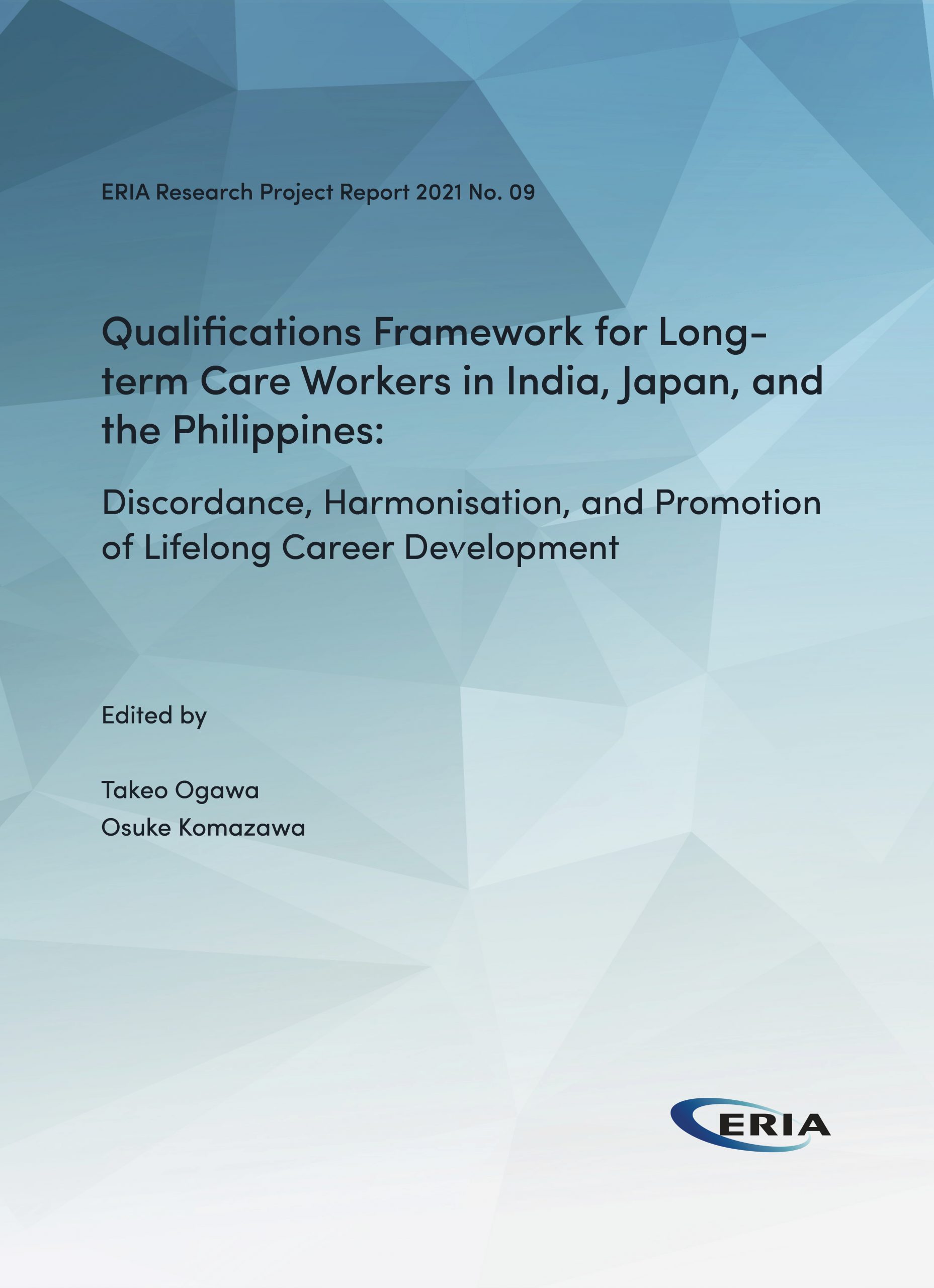This ERIA report is based on an AHWIN-supported study conducted by Keishin Gakuen that sought to model the development and circulation of long-term care workers in order to promote international harmonization of national qualification frameworks for long-term care workers.
Due to a steadily aging global population, the demand for care workers for older people is growing worldwide. In most societies and cultures, older people have traditionally been taken care of by family members, but shrinking family size has been making this difficult, and businesses providing care for older people are emerging. Countries with aged populations are increasingly relying on foreign care workers.
This study focuses on a comparison of vocational qualifications frameworks in India, the Philippines, and Japan. It aims to contribute to the promotion of policy dialogue with a view to creating more skilled workers and to establish systems that can fairly recognize their competencies so that their vocational skills can be much better utilized in any country.


